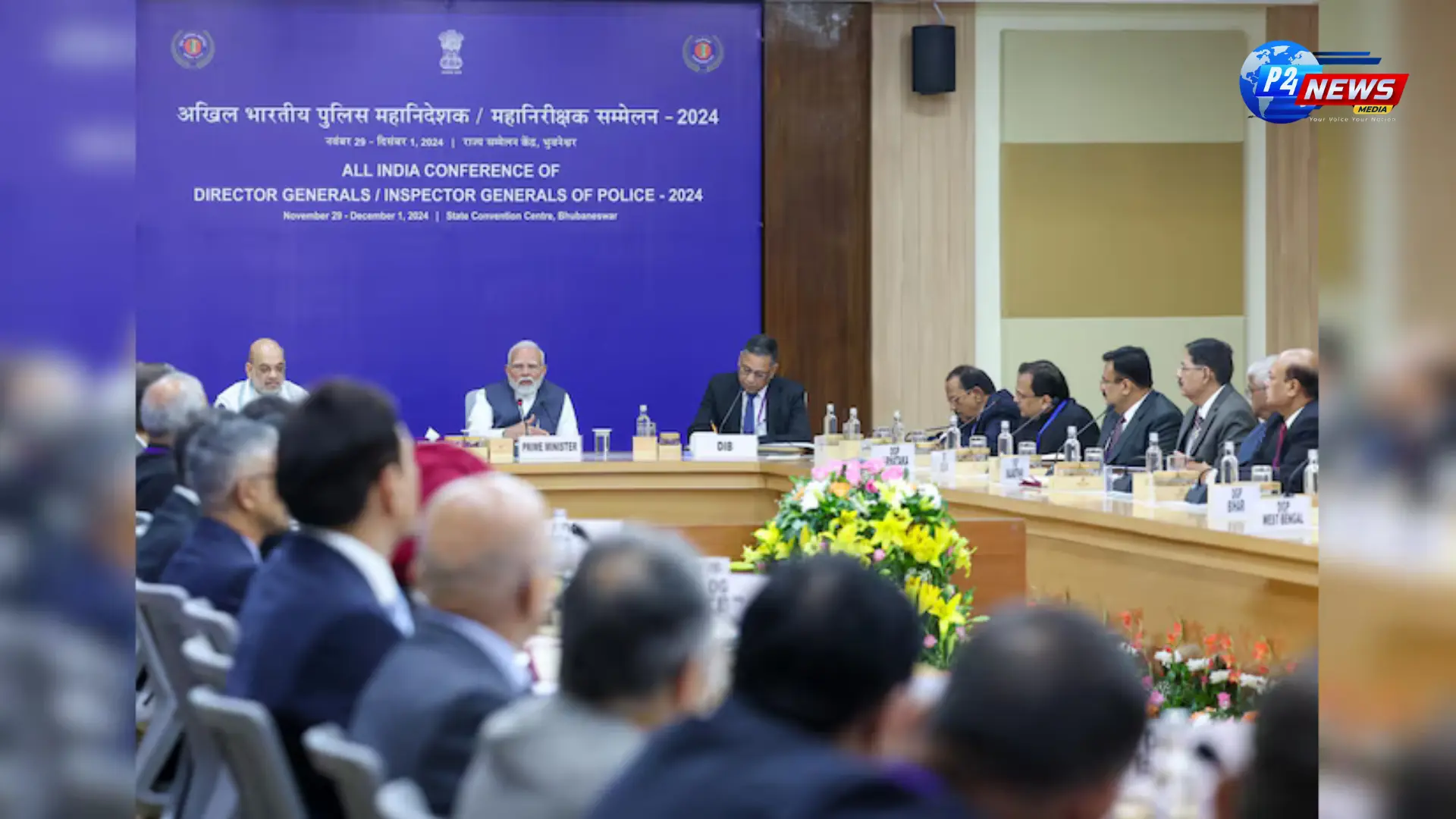Following the conclusion of the 59th DGsP/IGsP Conference in Bhubaneswar, PM Narendra Modi and Home Minister Amit Shah have returned to Delhi. The conference addressed critical national security issues, particularly Khalistani threats.
Following the conclusion of the 59th DGsP/IGsP Conference in Bhubaneswar, PM Narendra Modi and Home Minister Amit Shah have returned to Delhi. The conference addressed critical national security issues, particularly Khalistani threats.
Prime Minister Narendra Modi and Home Minister Amit Shah have concluded their visit to Bhubaneswar, where they participated in the 59th DGsP/IGsP Conference, aimed at addressing pressing national security concerns. After three days of deliberations, they returned to Delhi from Biju Patnaik International Airport.
The conference brought together Directors General of Police and Inspectors General of Police from various states and union territories, along with heads of Central Armed Police Forces and Central Police Organizations. Many officers joined virtually to ensure comprehensive discussions were held across the board.
Official reports indicate that this gathering focused on devising strategies to tackle a range of national security threats. Key topics included Left-Wing Extremism (LWE), Coastal Security, Narcotics control, Cyber Crime, and Economic Security. The participants also reviewed the implementation status of recent Criminal Law reforms and identified effective policing practices.
In light of threats from Khalistani groups, security was a paramount concern during the conference. Police Commissioner Suresh Devadatta Singh assured media representatives that extensive security protocols were established, stating, “Despite potential dangers, we ensured a comprehensive security framework during the conference, and investigations into threats were rigorously conducted.”
Notably, the three-day DGP-IGP conference proceeded without incident, despite warnings issued by Khalistani extremist Gurpatwant Singh Pannun, who had indicated intentions to disrupt the event. Reports suggest he issued threats via audio messages and emails directed to journalists in Odisha prior to the conference.
In response to these threats, a coordinated effort involving the Commissionerate Police, the Intelligence wing of Odisha, the Special Protection Group (SPG), and other relevant agencies was initiated to enhance security measures throughout the event.
As discussions on national security continue, it remains critical for law enforcement agencies to stay vigilant against emerging threats, enhancing their response capabilities. The collaborative approach taken during the conference could potentially serve to strengthen inter-state cooperation in addressing crime and security issues.
The conclusion of this conference reflects India's ongoing commitment to fostering a secure environment amid various challenges. As the national security landscape evolves, ongoing dialogues like these will be essential in bolstering the nation's safety and resilience against threats both domestic and international.
With PM Modi and HM Shah’s leadership, further initiatives will likely follow to ensure that the nation is prepared to face any potential disruptions, especially in the context of rising extremism.
The unity and resolve demonstrated by the security forces during this conference signify a strong front against any attempts at destabilization, ensuring that peace prevails in regions potentially at risk.
The dialogue surrounding national security will undoubtedly continue as authorities strive to adapt to new challenges, ensuring public safety and maintaining order across the states.
Like
Dislike
Love
Angry
Sad
Funny
Pray
'Trump Tracker: Tulsi Gabbard's Surprising Appointment as US Intelligence Chief
November 14, 20249th Ayurveda Day in Melbourne: A Celebration of Ayurvedic Innovations and Global Health Impact
November 10, 2024🍪 We Value Your Privacy and Experience Hi there! We use cookies to enhance your browsing experience, provide personalized content, and analyze site traffic. By continuing to use our site, you consent to our use of cookies.







Comments 0